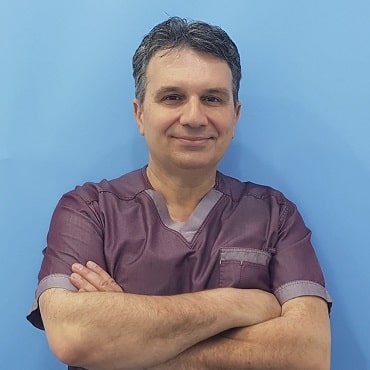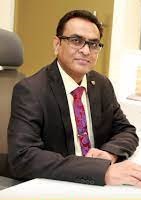Scientific Program
Keynote Session:
Title: Workshop on Roadmap to running a successful aesthetic medical clinic
Biography:
Pyn Lim received her honours BSc (honors) degree in Business and Management in 1994 from Bradford University. She has been an entrepreneur since 2000. In 2006 she founded her first aesthetic medical clinic called Venus, and 2 years later founded European College of Aesthetic Medicine and Surgery (ECAMS) with the vision to raise the standards in education for doctors and surgeons internationally who have a huge appetite to upgrade and learn new techniques in aesthetic world. With her vast experience, and through running the training business, she has very often been approached by international doctors and aesthetic clinics to help them in developing their business. This then led her to starting ECAMSInnovation; a company focusing on creating business development for aesthetic doctors/surgeons, and clinics.
Abstract:
Running a cosmetic clinic has been challenging and with so many competitors out there, how can one stand out from the crowd. Also with so many information that you can find in social media and internet, how can your stories be heard from the audience and how as a clinic owner create a story that can reach out to their target audience they want. Once they are able to get their audience to call the clinic for enquiries, how can they create an unforgettable experience and how can they improve their conversion rate. How many times should a follow up calls be? How quickly should be the response time in order to capture the audience if they have any miss calls? How can they build a better customer relationship in order to improve the customer retention rates? It is proven that it is cheaper to retain and get new spending on existing patients than to try to get new patients. So, is there a full prove strategy to retain existing customers. In this presentation, I would like to discuss and share my experience with the audience on how to address each of the above questions. We will look into some example how some company using ‘thinking out of the box’ idea to achieve the results they want.
- The GROW model
- Operation management
- Medical operation
- Commercial strategy
- Marketing & communication strategy
- Customer experience
Title: Volumizing fillers and face aging
Biography:
Gkritzalas Konstantinos has done his bachelor degree from University of Bologona, Italy. He completed his Master degree from University of Ioanina, Greece and University of Palermo Esthetic Medicine and Wellness.
Abstract:
The demand for injectable dermal filler treatments continues to grow as more people opt for noninvasive aesthetic rejuvenation and enhancement. The aging face change in all levels, skin Fat and bones. That is a fact and the restoration of this change using fillers and fat transfer as product and tissue replacement is till now focus on the skin and fat. The idea to replace the bone volume and status on aging classification is not in use.
Title: Photobiomodulation therapy as a tool for the Trichologist
Biography:
Jacky van Driel-Nguene is a Medical Biochemistry graduate from the University of London, and has a Post Graduate Certificate in Education from the London Institute of Education in the U.K. She is an experienced international teacher of science. She is also a Certified Trichologist and a member of the Association of Registered Trichologists. She is a co-director of Cystine Trichology Clinic and owner and director of Trichology Europe in Amsterdam, Netherlands.
Abstract:
The aim of this research-based study was to explore and review the usefulness and efficacy of photobiomodulation therapy/LLLT as an important tool to add to the Trichologist’s armamentarium. Photobiomodulation uses non-ionising light sources in the visible and invisible light spectra to improve tissue repair and reduce pain and inflammation in the body through an “optical window†of wavelengths between 600nm and 1070nm. Red light in the mid 600nm spectrum with a penetration depth less than 10mm is effective in treating superficial tissues (skin lesions) whilst light in the mid 800nm with a penetration depth up to 40mm, is effective for deeper structures such as tendons and bones. It appears that cytochrome c oxidase is the main photo-acceptor in cellular mitochondria and once stimulated by the “optical window†wavelengths, there is an increase in electron transport, mitochondrial respiration and ATP production as well as in nitric oxide generation as it is dissociated from CCO. ROS species are also generated, and they act as signalling molecules for communication between mitochondria and their surroundings within the cell. LLLT has been used successfully in various areas of medicine including the treatment of traumatic brain injuries and wounds and injuries. Many studies show positive results in the treatment of hair loss of various aetiologies, skin conditions such as eczema and psoriasis[, as well as pain and inflammation, which are all fundamental areas of interest to the Trichologist.
Title: the efficacy of homoeopathic medicines in the treatment of psoriasis
Biography:
I am Dr. R.S Sonawane, a Psoriasis specialist doctor in India. I have pursued my education from National Institute of Homeopathy (Govt. of India), Kolkata, world's biggest institute of Homeopathy, Dip.N.I.H. (Kolkata), M.D. (Homeopathy), D.I. (Homeopathy)(London), F.C.A.H.(MUHS)(Nashik).I have been Treating psoriasis patients for around 32 years now.
Abstract:
To Prove the efficacy of homoeopathic medicines in the treatment of psoriasis
Procedure:
- Â Acquiring the detailed case history of the patient according to the homoeopathic system of case taking.
- Assessing the Type, extent, severity and distribution of psoriasis. Noting Age, sex, occupation, Comorbidities, medications, adverse reactions.
- Taking the photographs of the psoriasis lesions of each patient before starting the treatment and also during every follow up visit.
- Record keeping patients follow up visits, history, complaints, photographs, tests and medication of each visit.
- Advising required tests for psoriasis and psoriatic arthritis.
- Giving homoeopathic medicines based on homoeopathic principles
- Counselling about diet, regimen and mental heath.Treatment is discontinued only if the Patient does not develop any signs and symptoms for 6 months during the treatment course. Such a patient is considered stable in who optimum recovery is attained. These patients are only advised to follow proper diet and regimen in their day-to-day life.
Observation:
So, after many years of treating more than 24000 psoriasis patients with homoeopathy I have observed that
1) Homoeopathy offers a safe, and effective treatment for psoriasis. 2) Many patients are cured and did have not have any relapse for 10+ years. These patients are observed under placebos for one and half year and when psoriasis does not relapse the treatment is discontinued. This is one of the accomplishments.
3) Psoriasis one alleviated it returned next time in less intensity and on lesser parts
4) In some patient’s psoriasis was cured up to 90% and the remaining 10% persisted but the condition did not escalate
5) In most patients almost 50% - 60% who are under my treatment for 6+ years showed control of present condition and hence opt to continue the treatment since there are no side effects of homoeopathic medicines
6)Homoeopathic medicines work even in severe stages of psoriasis. After giving homeopathic medicine at whatever severe stage psoriasis is in, homeopathic medicines definitely help to alleviate that stage and patient recovers completely.
7) Some patients who withdraw the treatment after 40-50% recovery and restart the treatment again after few years still show no intensification of symptoms, and psoriasis is very much in control.
8) Patients who have recently started new treatment initially show aggravation and gradually get relieved. This is mainly due to overuse of conventional medicines for a long period leading to suppression.
9) Patients who are recovered are advised to consult after 6months or a year to check if no new lesions have emerged.
10) Patients who do not find any relief with the medications, or the condition has exacerbated are advised for a in depth case taking and medicines are changed accordingly.
Title: Evaluation of serum high mobility group box1 level in patients with Alopecia Areata
Biography:
Mohamed E. Algalaly is a Major Dermatologist at the Department Of Dermatology in the Armed Forces Medical Complex Kobry El koba, Egypt. He has completed his MSc from Ain Shams University, Egypt. He is member of the Egyptian Military Medical Academy. Recently he works at the German Armed Forces Hospital, Berlin, as a member of an international cooperation training program.
Abstract:
Alopecia areata (AA) is the most frequent cause of inflammation-induced hair loss. It is an organ–specific autoimmune disease where T cells and cytokines play an important role in the pathogenesis. High mobility group box1 (HMGB1) is a conserved protein located in all mammalian nuclei at high concentrations. It can be released extracellularly and acts as a proinflammatory cytokine in both acute and chronic inflammatory conditions and serves as a significant target antigen in many autoimmune disorders. However, its role in alopecia areata is under investigation






